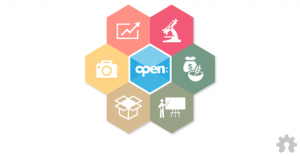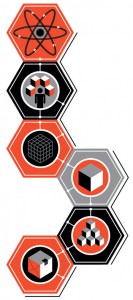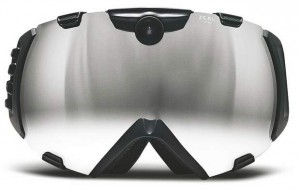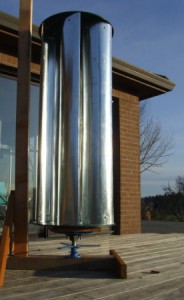
Jean Lievens: Open Tech Challenges Proprietary, Relocalizes Manufacturing, Addresses Poverty
Crowd-Sourcing, Design, Economics/True Cost, Hardware
Open Tech Forever Challenges Proprietary Innovation
Open source hardware could be a revolutionary tool for unlocking our shackles to profit motivated, proprietary innovation. It has a vision to alleviate poverty through empowering decentralized and affordable, small scale production. Participants anywhere in the world can use the internet to access, improve, or adapt designs for local manufacturing and drastically increase the rate of innovation.
Open Tech Forever (OTF) is emerging to become a new force in open source hardware development by building an open source factory where it will produce open technology. OTF recently launched an Indiegogo crowdfunding campaign to raise $50,000 to build the facility, and they need your support. As a cooperatively-owned social enterprise, all of its innovation will be transparently documented in writing, graphics and video, and released under a Creative Commons license.

OTF’s mission is to “facilitate cooperation among the communities that live on the frontlines of suffering throughout the world, so that we can build enduring solutions to poverty and the destruction of the environment.” OTF co-founder, Aaron Makaruk explains, “An entirely new economic frontier stands before us, a world where innovation and wealth are mass produced as easily as a file is downloaded to a computer. Our goal is to use local, open source factories to outcompete companies that import unsustainable products manufactured in inhuman conditions and put them out of business – one locally-owned, open source company at a time.”
. . . . . . . . .
Relocalizing manufacturing is one of the most significant steps we can take to prepare for the destabilizing effects of climate change and to empower local communities to build resilient, self-sustaining economies. OTF, with its passionate team of skilled engineers and radical mission, will be an exciting project to watch as it grows over the next couple years and a great cause to support through its first phase of development.
Jean Lievens: Warren Karlenzig: Collective Intelligence–Cities as Global Intelligence Platform
Architecture, Crowd-Sourcing, Design, Governance, Innovation, Knowledge, P2P / Panarchy, Resilience
Social media and collaborative technologies–layered with smart systems combining geo-location data with human experience–will make cities the driving sustainability force in a dawning planetary era. Cities will anticipate new risks with rapid urban systems innovation based upon crowdsourcing, virtual and physical communities, and transparent markets sensitive to full carbon and resource costs. Creatively leveraging collective intelligence for clean energy, low carbon mobility and sustainable food and water, the new urban grid will enable high local quality of life, lifelong learning and vibrant green economies.
Jean Lievin: Micro-Manufacturing and Open Source Everything — Re-Empowering Labor over Capital
#OSE Open Source Everything, Design, Governance, Hardware, Manufacturing, Materials
Micro Manufacturing, Third Wave Style…Perfect for Worker Coops?
In the Next Industrial Revolution, Atoms Are the New Bits
By Chris Anderson
The door of a dry-cleaner-size storefront in an industrial park in Wareham, Massachusetts, an hour south of Boston, might not look like a portal to the future of American manufacturing, but it is. This is the headquarters of Local Motors, the first open source car company to reach production. Step inside and the office reveals itself as a mind-blowing example of the power of micro-factories.
. . . . . . . .

In June, Local Motors will officially release the Rally Fighter, a $50,000 off-road (but street-legal) racer. The design was crowdsourced, as was the selection of mostly off-the-shelf components, and the final assembly will be done by the customers themselves in local assembly centers as part of a “build experience.” Several more designs are in the pipeline, and the company says it can take a new vehicle from sketch to market in 18 months, about the time it takes Detroit to change the specs on some door trim. Each design is released under a share-friendly Creative Commons license, and customers are encouraged to enhance the designs and produce their own components that they can sell to their peers.
. . . . . . . .
Here’s the history of two decades in one sentence: If the past 10 years have been about discovering post-institutional social models on the Web, then the next 10 years will be about applying them to the real world.
This story is about the next 10 years.
Jean Lievins: 10 Ideas Driving The Future Of Social Entrepreneurship
Architecture, DesignInformation overload? • Wearable sports technology raises safety concerns
Data, Design
Information overload? • Wearable sports technology raises safety concerns
If you think the desktop Web and the smartphone were occasions for info-overload, get ready for wearable computing, which isn't waiting for the 2014 release of Google Glass. On ski slopes and on the roads, we're about to embark on a societal experiment regarding the dangers of fragmented attention. How many people will master multiple streams of incoming information while racing down a hill or driving on a freeway? And how many will crash?

Safety advocates say the concept of high-tech displays for goggles — and for other sports eyewear — is information overload run amok, particularly when people are using them at high speeds. Yet Oakley, based in Foothill Ranch, Calif., is one of a handful of sports eyewear companies betting that thrill seekers and athletes crave the equivalent of a cockpit dashboard while skiing, snowboarding, cycling and running. The companies are in the vanguard of the next wave of personal technology, called wearable computing, which promises to further shrink the barrier between users and the information they seek.”
DIY Wind Turbine Project Goes Open Source
05 Energy, Design
DIY Wind Turbine Project Goes Open Source
This DIY, vertical-axis wind turbine uses easily attainable parts, can be built by anyone and yields impressive power output. As a bonus, it's open source.
Applied Sciences, which did the work, notes that the intention of this product was to provide supplemental water heating. The result is this wind turbine made of materials that you can find at Home Depot and online. Applied Sciences provides what you need to know to build one yourself, including some videos of the turbine and its parts in action and some other valuable resources that will help hopefully get the turbine connected to your home and operating.


Future of Social via Fastcompany
1. It’s about changing the system, stupid.
2. Change is accelerating.
3. To solve our problems we need more problem solvers.
4. It starts with young people.
5. Scale through collaboration.
6. Technology is driving creative disruption.
7. Power is moving from the few to the many.
8. The silos are breaking down.
9. Here comes the social Intrapreneur.
10. When You pass the torch light many fires.
Yes there is a difference between “social entrepreneurship” and “Social Media Marketing” but they are complimentary tactics and philosophies.